Filter by
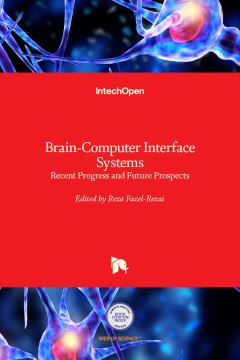
Brain-computer interface systems - recent progress and future prospects
Brain-Computer Interface (BCI) systems allow communication based on a direct electronic interface which conveys messages and commands directly from the human brain to a computer. In the recent years, attention to this new area of research and the number of publications discussing different paradigms, methods, signal processing algorithms, and applications have been increased dramatically. The o…
- Edition
- -
- ISBN/ISSN
- 9789535111344
- Collation
- 280 p.; 22 cm.
- Series Title
- -
- Call Number
- 004.072 BRA b
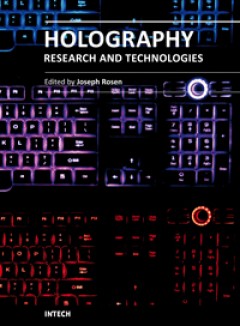
Holography, research and technologies
Holography has recently become a field of much interest because of the many new applications implemented by various holographic techniques. This book is a collection of 22 excellent chapters written by various experts, and it covers various aspects of holography. The chapters of the book are organized in six sections, starting with theory, continuing with materials, techniques, applications as …
- Edition
- -
- ISBN/ISSN
- 9789533072272
- Collation
- 468 p.; 22 cm.
- Series Title
- -
- Call Number
- 621.072 HOL h

Convergence culture reconsidered : media - participation - environments
Taking media scholar Henry Jenkins’s concept of ‘convergence culture’ and the related notions of ‘participatory culture’ and ‘transmedia storytelling’ as points of departure, the essays compiled in the present volume provide terminological clarification, offer exemplary case studies, and discuss the broader implications of such developments for the humanities. Most of the contribu…
- Edition
- -
- ISBN/ISSN
- 9783863952174
- Collation
- 224 p.
- Series Title
- -
- Call Number
- 303.4833 GEO c
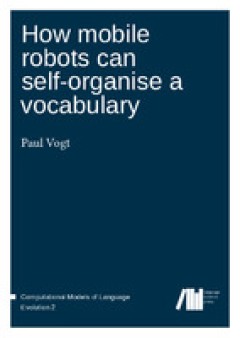
How mobile robots can self-organise a vocabulary
One of the hardest problems in science is the symbol grounding problem, a question that has intrigued philosophers and linguists for more than a century. With the rise of artificial intelligence, the question has become very actual, especially within the field of robotics. The problem is that an agent, be it a robot or a human, perceives the world in analogue signals. Yet humans have the abilit…
- Edition
- -
- ISBN/ISSN
- 9783946234005
- Collation
- XII, 271 p.
- Series Title
- -
- Call Number
- 402.85 VOG h

The Huawei and Snowden questions : Can electronic equipment from untrusted ve…
This book answers two central questions: firstly, is it at all possible to verify electronic equipment procured from untrusted vendors? Secondly, can I build trust into my products in such a way that I support verification by untrusting customers? In separate chapters the book takes readers through the state of the art in fields of computer science that can shed light on these questions. In a …
- Edition
- -
- ISBN/ISSN
- 9783319749501
- Collation
- xiv, 116p. : ill.
- Series Title
- -
- Call Number
- 005.8 LYS h
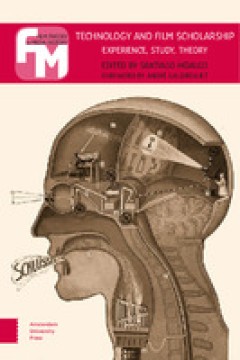
Technology and film scholarship : experience, study, theory
This volume brings together a wide range of explorations of the ways in which technological innovations have established new and changing conditions for the experience and study of film. The book offers analyses by such leading figures in film studies as Tom Gunning and Charles Musser, who examine the ways in which technological changes have altered the ways how cinema is conceived and how it i…
- Edition
- -
- ISBN/ISSN
- 9789048525270
- Collation
- 264 p.
- Series Title
- Film Theory in Media History
- Call Number
- 791 TEC t
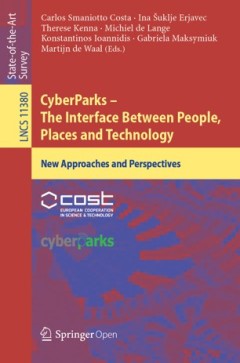
CyberParks : the interface between people, places and technology : new approa…
This open access book is about public open spaces, about people, and about the relationship between them and the role of technology in this relationship. It is about different approaches, methods, empirical studies, and concerns about a phenomenon that is increasingly being in the centre of sciences and strategies – the penetration of digital technologies in the urban space. As the main outco…
- Edition
- -
- ISBN/ISSN
- 9783030134174
- Collation
- xv, 321p. : ill.
- Series Title
- -
- Call Number
- 307.1216 CYB c

Fundamentals of clinical data science
This open access book comprehensively covers the fundamentals of clinical data science, focusing on data collection, modelling and clinical applications. Topics covered in the first section on data collection include: data sources, data at scale (big data), data stewardship (FAIR data) and related privacy concerns. Aspects of predictive modelling using techniques such as classification, reg…
- Edition
- -
- ISBN/ISSN
- 9783319997131
- Collation
- viii, 219p. : ill.
- Series Title
- -
- Call Number
- 610.285 FUN f
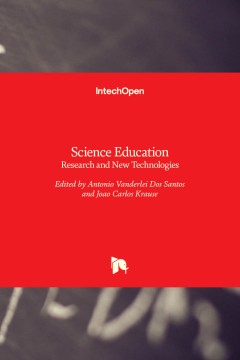
Science education : research and new technologies
The book presents a discussion on education of sciences, through a technological view shown in the works of a variety of authors from different countries. It's a differentiated conception of scientific education bringing renowned authors who discuss from teacher formation to the inclusion of new technologies into education. We are proud to say that the themes discussed in the book are up to dat…
- Edition
- -
- ISBN/ISSN
- 9789535135395
- Collation
- 184 p.; 22 cm.
- Series Title
- -
- Call Number
- 373.2 SCI s
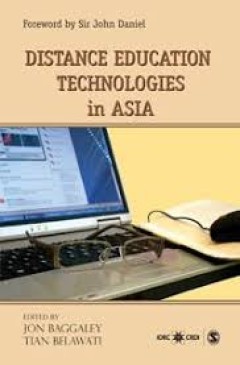
Distance education technologies in Asia
For observers elsewhere in the world, the most striking feature of distance education (DE) in Asia is the mega-universities and mega-schools that have added many millions to the global tally of distance learners in recent decades. These are institutions such as China’s radio and television universities (now called the Open University of China) and India’s National Institute for Open Schooli…
- Edition
- -
- ISBN/ISSN
- 9781552505021
- Collation
- xxxvi, 270 p.
- Series Title
- -
- Call Number
- -
 Computer Science, Information & General Works
Computer Science, Information & General Works  Philosophy & Psychology
Philosophy & Psychology  Religion
Religion  Social Sciences
Social Sciences  Language
Language  Pure Science
Pure Science  Applied Sciences
Applied Sciences  Art & Recreation
Art & Recreation  Literature
Literature  History & Geography
History & Geography